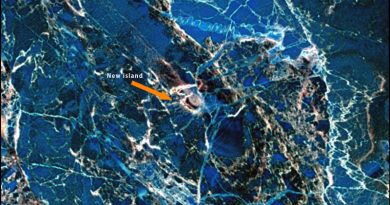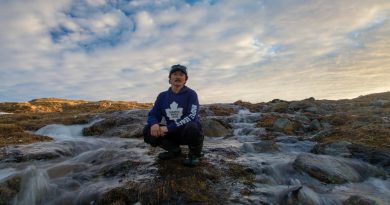Recent warming over the past 100 years is not part of a natural process, studies find
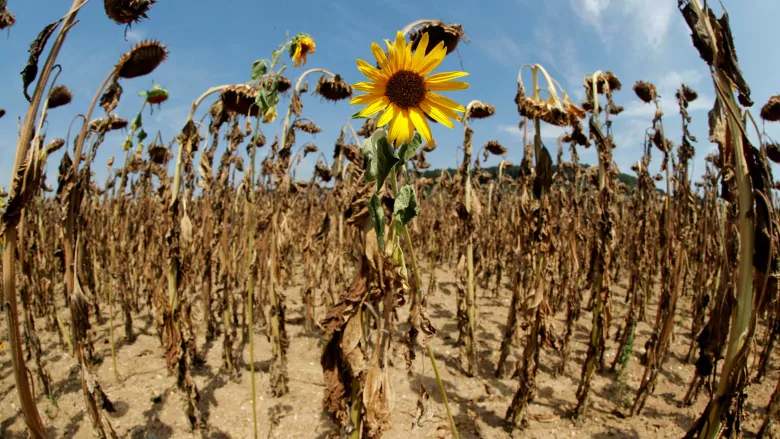
Earth’s natural cycles can’t account for the recent warming seen over the past 100 years, new research suggests.
In one of three new studies published in the journals Nature and Nature Geoscience, researchers found that previous periods of climate change such as the Little Ice Age and the Medieval Warming Period were regional and not a global phenomenon.
In contrast, the warming that has occurred over the past century has been far-reaching and global in nature.
“In this paper, what we do is look at climate over the past 2,000 years — and traditionally the understanding of climate over this period is that there were globally coherent periods of climate variability,” said Nathan Steiger, co-author of the paper and an associate researcher at the Lamont-Doherty Earth Observatory at Columbia University. “But what we show is that these periods are not globally coherent, as previously thought.”
In order to obtain a robust sampling of data around the world, the researchers used 700 records obtained from trees, ice, coral, sediment and more.
In the case of the Little Ice Age, the researchers found that different parts of the planet experienced changes at different times.
The central and eastern Pacific regions experienced their coldest temperatures in 2,000 years during the 15th century. But in northwestern Europe and southeastern North America, the coldest temperatures occurred during the 17th century. For everywhere else, it occurred during the 19th century.
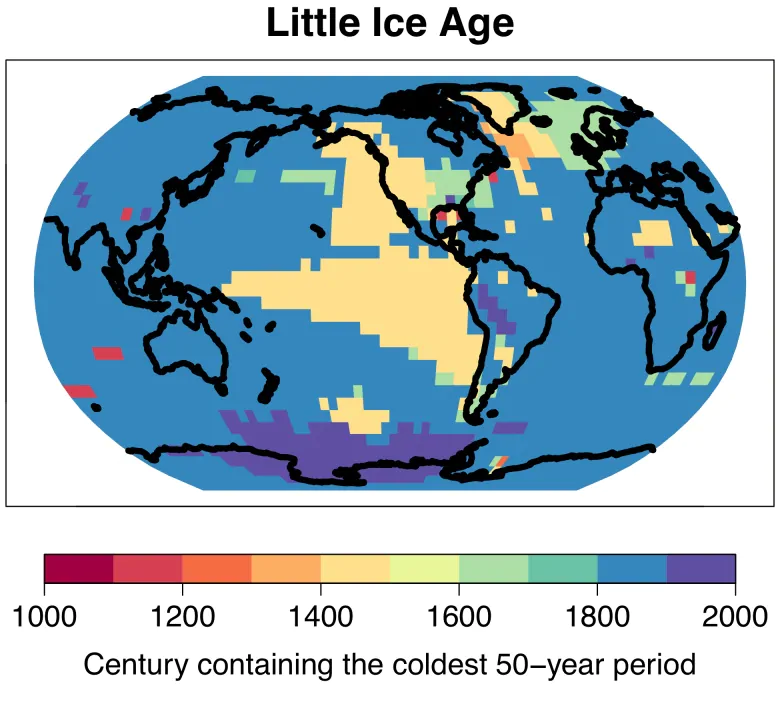
In contrast, the warming we are seeing today spans 98 per cent of the planet.
Their study only went as far as the year 2000, but nine of the 10 warmest years on record have occurred since then, with the past five years being the warmest.
Those who question or disagree with scientific evidence pointing to anthropogenic, or human-caused, climate change often cite Earth’s natural cycles as one of the reasons for the planet’s recent warming. The Little Ice Age is most often presented as evidence of part of this natural cycle.
But, Steiger said, “internal variability [doesn’t] explain the coherence that we see for the contemporary warming.”
Agreement
In a second study, researchers examined Earth’s rate of surface warming — the global mean temperature — and its drivers. They found that the rate of warming over periods of at least 20 years was fastest during the late 20th century.
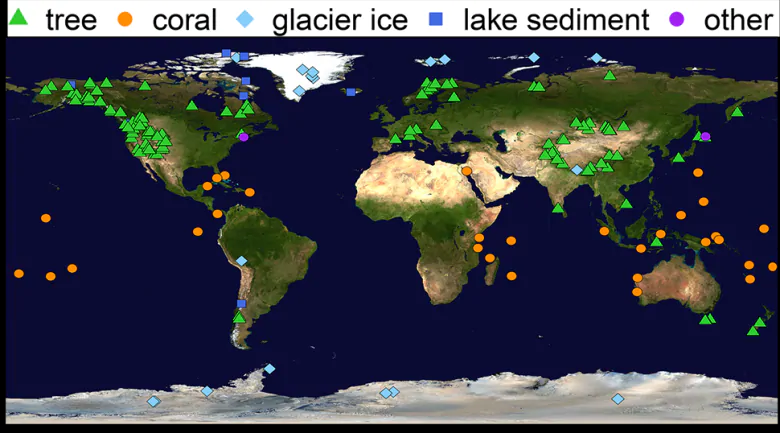
“We find that at pre-industrial times … major volcanic eruptions were the major drivers of temperature fluctuations,” said co-author Raphael Neukom, a scientist at the Oeschger Centre for Climate Change Research at the University of Bern. But external forces such as variations in the sun’s output did not have “a significant influence” on temperatures.
The sun is also often used by climate skeptics as an external driving force responsible for climate change.
The third paper also concluded that volcanoes played a role in climatic upheaval in the past.
It’s this agreement between the three separate studies that the teams of researchers believe is an important indicator of the climate state the planet is currently experiencing.
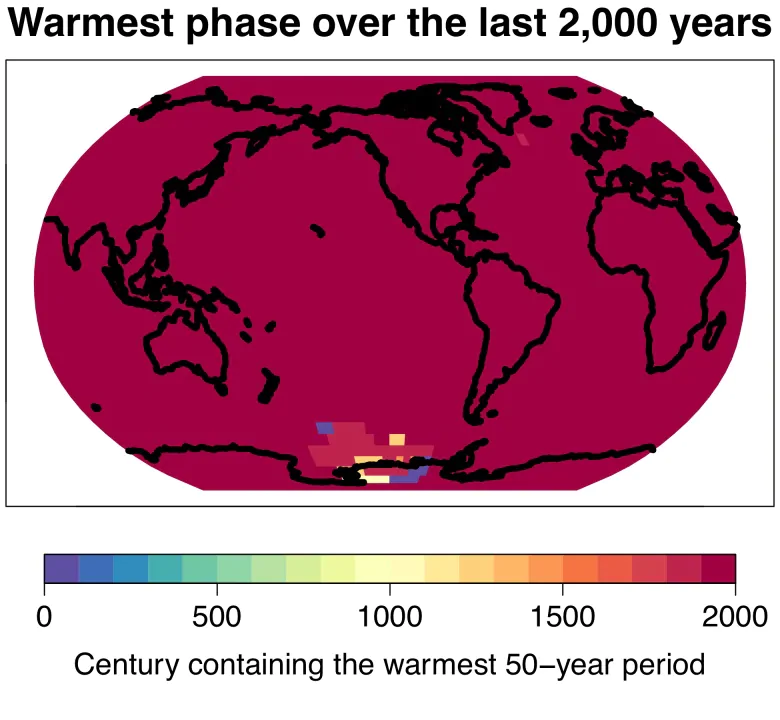
“The basic conclusion is that what’s happening today is anomalous, and we understand why it’s anomalous — it’s not a mystery,” said Gavin Schmidt, a climatologist and director of NASA’s Goddard Institute for Space Studies, who was not involved with the study.
But, he said, while the findings may not be entirely new, it’s encouraging to have the new research to support other studies, and to offer it up to people who are “grasping at straws to avoid” dealing with climate change.
“This is really like a triple underlining of the fact that what’s happening now is unusual in a multi-centennial context and maybe in a much larger context,” Schmidt said. “And people have to deal with that.”
Steiger said his team expected to find warming across the globe but were surprised at the extent.
“There’s a lot of evidence for humans causing the contemporary warming. From our perspective, what we were most interested in is the past explaining the past, and how we understand the past, and then contrast it with the [present],” Steiger said. “There’s so much evidence out there anyway. We didn’t need to put the nail in the coffin.”
Related stories from around the North:
Canada: Northern Canada warming at three times the global rate, report finds, CBC News
Finland: U.S., Russia thwarting black carbon reduction efforts in Arctic, says Finland, Yle News
Greenland: What Arctic ice can tell us about plagues, climate and conflict in the Middle Ages, CBC News
Norway: Temperatures on Svalbard have been above normal for 100 straight months, The Independent Barents observer
Russia: Warmest winter ever on the Northern Sea Route, The Independent Barents Observer
Sweden: Local councils in Sweden more interested in climate change preparedness, Radio Sweden
United States: 2018 was the 4th-warmest year on record, NOAA and NASA reveal, CBC News


